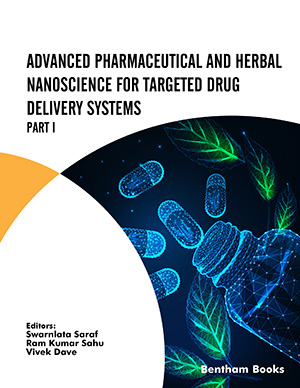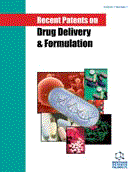Abstract
Being a notable form of neurodegenerative disorder, Alzheimer's disease (AD) accounts for the cognitive decline of a wide range of the population globally. Any
form of dysfunction to the cholinergic system of the brain marks the onset of cognitive
decline and paves the way for progressive neurodegeneration in AD. Alteration in
acetylcholinesterase activity, accumulation of beta-amyloid protein, mitochondrial
dysfunction, oxidative stress, and neuroinflammation are some of the marked gateways
to the pathogenesis of AD. Although nature harbors a wide array of herbal cures to
various gateways of cholinergic dysfunction, there exist certain restrictions to efficient
delivery and therapeutic action of the phytocompounds in-vivo. Despite bearing certain
reversible limitations, the application of nanoscience has successfully cleared off several
barriers from the drug designing and delivery of herbal extracts and enriched the
therapeutic potentiality of the medicinal plants that have been practiced extensively since
time immemorial. Several forms of nanoparticles (NP) have been designed to date viz.,
polymeric NP, lipid-based NP, metallic NP, each having their characteristic advantage
as drug carriers. In addition to advantages like high drug loading capacity, target-specific
drug release, high bioavailability, etc., the ability to penetrate the Blood- Brain Barrier
(BBB) non-invasively makes the nanocarriers most suitable for delivering herbal drugs
targeting neurodegenerative disorders. The present chapter, therefore, discusses the
therapeutic qualities of several herbal compounds targeting cholinergic dysfunction and
the remarkable milestones set by nanotechnology in amplifying the potentiality of the
herbal drugs in the treatment of AD.
Keywords: Blood-brain barrier, Curcumin, Cuscuta chinensis, Dendrimer, GFAP, Herbal extract, Liposome, Micelle, Mitochondrial dysfunction, Nanocarrier, Neuroinflammation, Oxidative stress, Pathophysiology, Piperine, Polymeric, Quercetin, Resveratrol, Therapeutic.






















